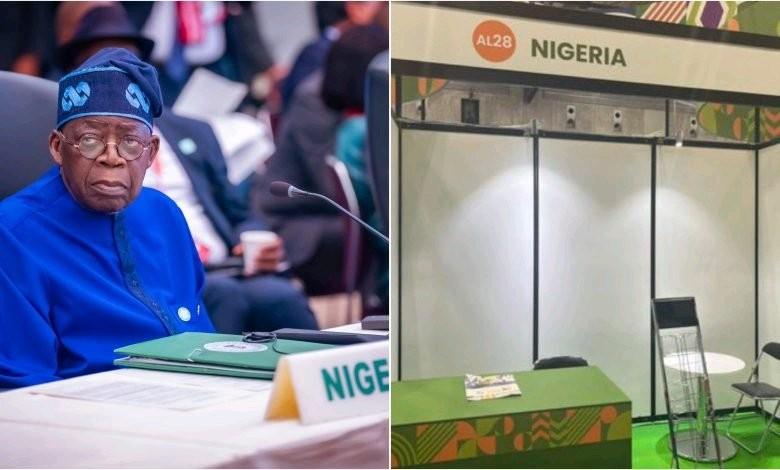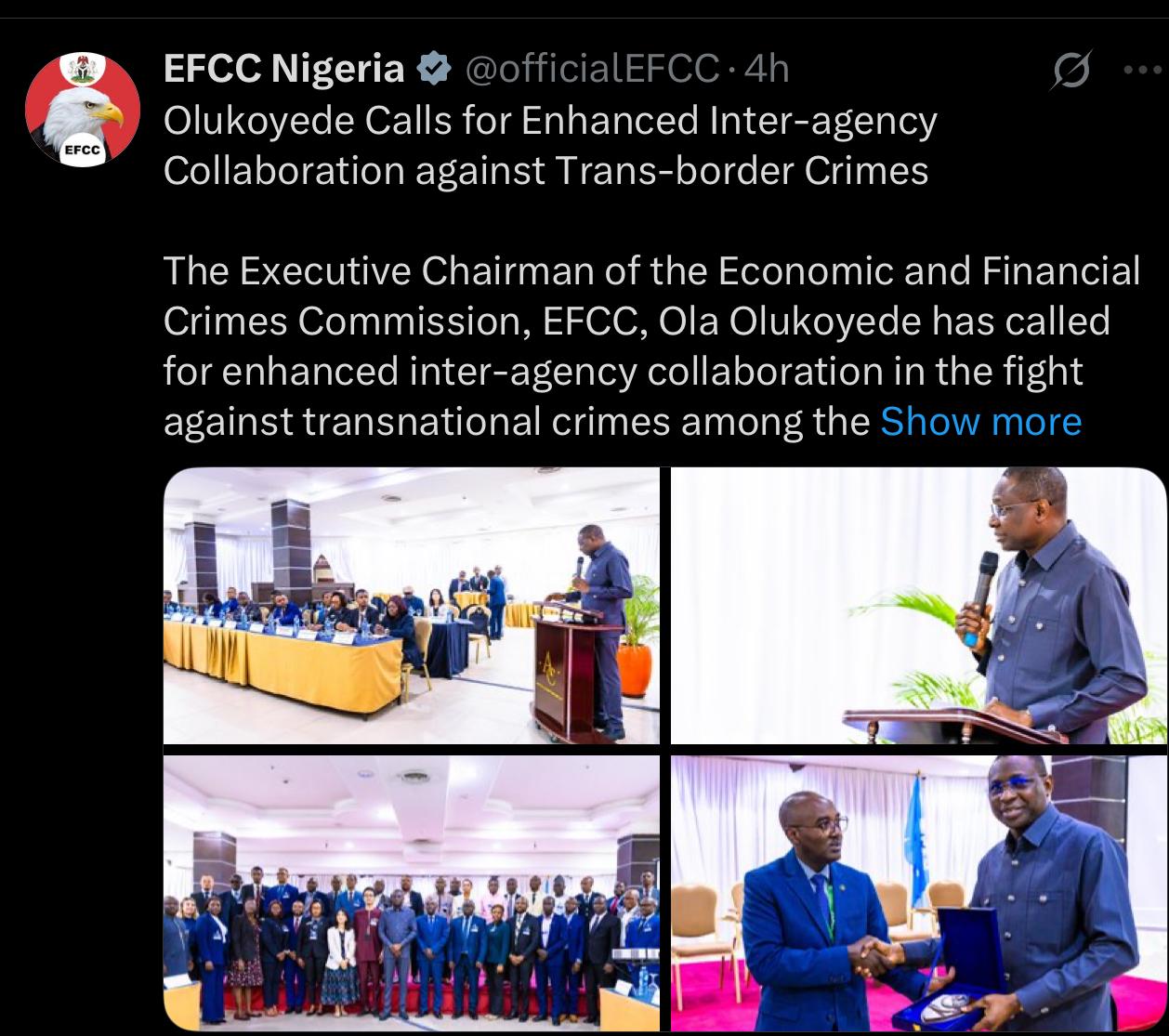Olukoyede Calls for Enhanced Inter-agency Collaboration against Trans-border Crimes
The Executive Chairman of the Economic and Financial Crimes Commission, EFCC, Ola Olukoyede has called for enhanced inter-agency collaboration in the fight against transnational crimes among the member states of West and Central African regions as well as adequate capacity building on the part of the personnel involved in the fight against such crimes.
He made the call on Tuesday, June 24, 2025, at a three-day Regional Basic Training Workshop with the theme, “Strengthening Capacity and Coordination against Transnational Regional Financial Crimes,” organized by Interpol and Japan International Cooperation Agency, JICA.
Commenting on the spate of crimes in the West and Central African regions and how criminal enterprises are funded, the EFCC boss noted that the security challenges in the regions are fueled by money laundering and illicit financial flows and pointed at a critical need for investment in training and capacity development of personnel in the fight against transnational crimes.
He stated that the poorly- regulated mining sector and largely cash-based economies of the West and Central African regions, coupled with increasing popularity of a largely unregulated virtual assets ecosystem have compounded the regions’ vulnerability.
“Equally concerning are the evolving dynamics of organised cybercrime across our regions. In Nigeria for instance, recent operations by the EFCC have revealed a notable shift, with an increasing number of syndicates involving foreign nationals, particularly from parts of the Southern Asian Continent. Understanding how these groups work and are able to establish operational cells within our borders and effectively dismantling their global networks of collaborators necessitates a coordinated, multi-agency approach both locally and internationally.
“Doing this requires strengthening inter-agency coordination and enhancing the technical capabilities of law enforcement. There is a compelling need for collaboration by law enforcement organizations through intelligence sharing, joint tactical operations and training of the kind that we are having today to build capacity to deal with emerging typologies of cyber-criminality including cryptocurrency fraud and sextortion,” he said.
The EFCC Chairman added that through collaboration and coordination, law enforcement agencies can harness collective strength and resources in overcoming new challenges of criminality in the regions.
“As the president of NACIWA, my vision is to ensure sustenance of robust partnership by all the anti-corruption agencies in West Africa through training, joint operations and information sharing to make the region unsafe for money laundering and illicit financial flows. The EFCC believes strongly in capacity development and collaboration. The Commission maintains robust relationships with international and local law enforcement organizations,” he said.
The Chief Representative of JICA, Susumu Yuzurio stated that JICA was implementing economic and social development projects in cooperation with partner countries around the world in areas of human security and contributing to achieve Sustainable Development Goals, SDGs.
“We are implementing economic and social development projects in cooperation with partner countries around the world, based on our guiding principle of human security. We aim at contributing to achieving the Sustainable Development Goals (SDGs), the international common goals to realize a world where no one is left behind,” he said.
Yuzurio noted that transnational financial crimes, especially money laundering remained a critical financial flow which posed serious risks to national and regional security, adding that the three day training workshop serves as an avenue to strengthen collective capacity to detect, prevent and disrupt financial crimes through regional cooperation, policy development and practical skills
Olukoyede Calls for Enhanced Inter-agency Collaboration against Trans-border Crimes
The Executive Chairman of the Economic and Financial Crimes Commission, EFCC, Ola Olukoyede has called for enhanced inter-agency collaboration in the fight against transnational crimes among the member states of West and Central African regions as well as adequate capacity building on the part of the personnel involved in the fight against such crimes.
He made the call on Tuesday, June 24, 2025, at a three-day Regional Basic Training Workshop with the theme, “Strengthening Capacity and Coordination against Transnational Regional Financial Crimes,” organized by Interpol and Japan International Cooperation Agency, JICA.
Commenting on the spate of crimes in the West and Central African regions and how criminal enterprises are funded, the EFCC boss noted that the security challenges in the regions are fueled by money laundering and illicit financial flows and pointed at a critical need for investment in training and capacity development of personnel in the fight against transnational crimes.
He stated that the poorly- regulated mining sector and largely cash-based economies of the West and Central African regions, coupled with increasing popularity of a largely unregulated virtual assets ecosystem have compounded the regions’ vulnerability.
“Equally concerning are the evolving dynamics of organised cybercrime across our regions. In Nigeria for instance, recent operations by the EFCC have revealed a notable shift, with an increasing number of syndicates involving foreign nationals, particularly from parts of the Southern Asian Continent. Understanding how these groups work and are able to establish operational cells within our borders and effectively dismantling their global networks of collaborators necessitates a coordinated, multi-agency approach both locally and internationally.
“Doing this requires strengthening inter-agency coordination and enhancing the technical capabilities of law enforcement. There is a compelling need for collaboration by law enforcement organizations through intelligence sharing, joint tactical operations and training of the kind that we are having today to build capacity to deal with emerging typologies of cyber-criminality including cryptocurrency fraud and sextortion,” he said.
The EFCC Chairman added that through collaboration and coordination, law enforcement agencies can harness collective strength and resources in overcoming new challenges of criminality in the regions.
“As the president of NACIWA, my vision is to ensure sustenance of robust partnership by all the anti-corruption agencies in West Africa through training, joint operations and information sharing to make the region unsafe for money laundering and illicit financial flows. The EFCC believes strongly in capacity development and collaboration. The Commission maintains robust relationships with international and local law enforcement organizations,” he said.
The Chief Representative of JICA, Susumu Yuzurio stated that JICA was implementing economic and social development projects in cooperation with partner countries around the world in areas of human security and contributing to achieve Sustainable Development Goals, SDGs.
“We are implementing economic and social development projects in cooperation with partner countries around the world, based on our guiding principle of human security. We aim at contributing to achieving the Sustainable Development Goals (SDGs), the international common goals to realize a world where no one is left behind,” he said.
Yuzurio noted that transnational financial crimes, especially money laundering remained a critical financial flow which posed serious risks to national and regional security, adding that the three day training workshop serves as an avenue to strengthen collective capacity to detect, prevent and disrupt financial crimes through regional cooperation, policy development and practical skills







